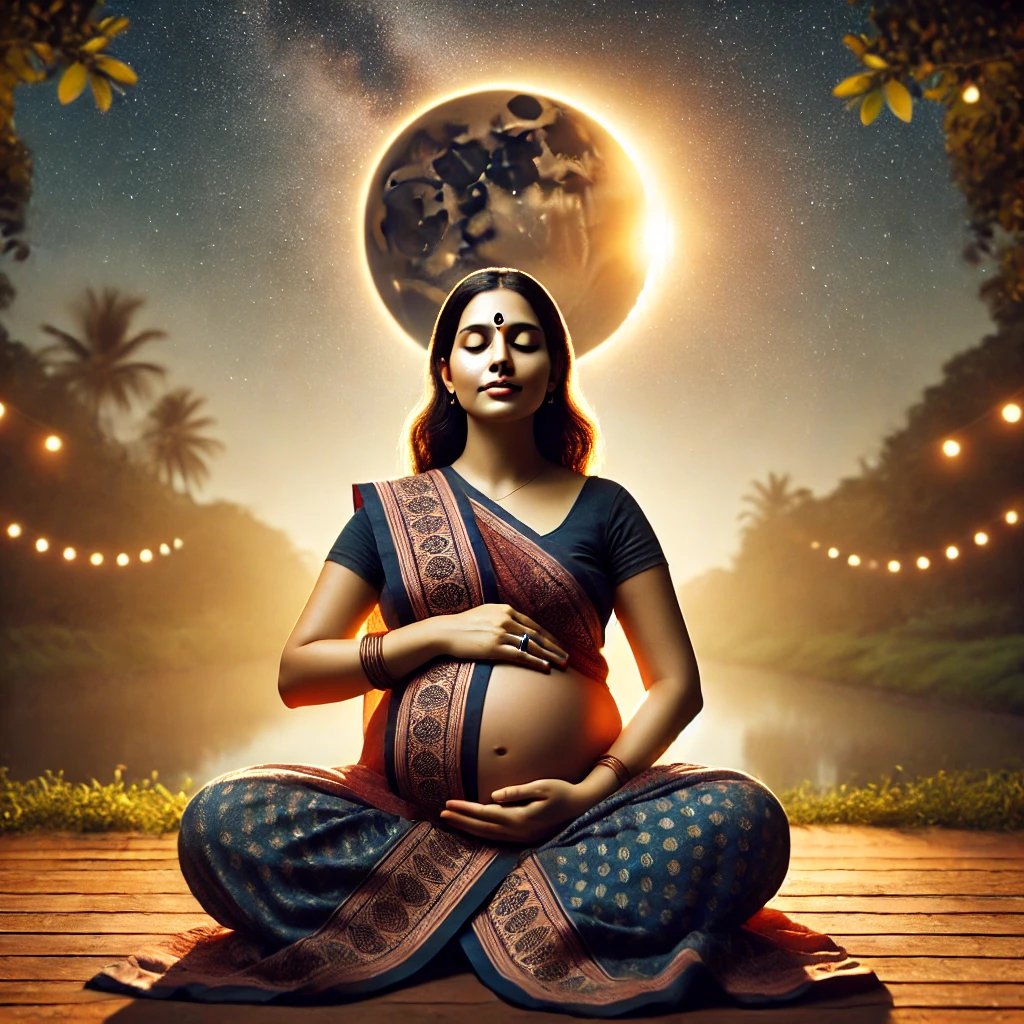Eclipse and Pregnancy: Myths, Facts, and Practical Precautions
By Dr. Shital’s Garbhsanskar and Pregnancy Yoga
Eclipses have long been surrounded by cultural beliefs, especially regarding pregnancy. Many expecting mothers receive advice on what to do and what to avoid during an eclipse. While these traditions stem from ancient times, modern science gives us a better understanding of whether they hold any truth.
In this article, we will explore common myths, the scientific facts behind them, and practical guidelines for expecting mothers to stay safe and stress-free during an eclipse.
Myths vs. Facts About Eclipse and Pregnancy
Myth 1: Pregnant Women Should Not Step Outside During an Eclipse
Fact: There is no direct harm in stepping outside during an eclipse, but looking at a solar eclipse without protection can damage the eyes.
Myth 2: Eclipses Cause Birth Defects Like Cleft Lip or Black Spots on the Baby
Fact: Birth defects occur due to genetic, nutritional, or environmental factors—not celestial events like eclipses.
Myth 3: Pregnant Women Should Avoid Using Sharp Objects Like Scissors or Pins
Fact: There is no scientific reason to avoid using sharp objects during an eclipse.
Myth 4: Pregnant Women Should Avoid Eating and Drinking During an Eclipse
Fact: Food does not become “contaminated” during an eclipse. Ayurveda suggests fasting, but pregnant women are exempt.
Myth 5: Eclipses Can Affect Animal Offspring, So They Must Affect Human Babies Too
Fact: Some animals show temporary behavioral changes due to sudden darkness, but this does not affect fetal development.
Myth 6: Looking at the Sun During an Eclipse Can Cause Miscarriages or Deformities
Fact: Looking at a solar eclipse without proper protection can damage anyone’s eyes but has no connection to pregnancy complications.
Myth 7: A Solar Eclipse Can Induce Labor
Fact: There is no scientific evidence to support this claim. Labor is triggered by hormonal changes, not celestial events.
Precautions: Simple and Practical Guidelines for Expecting Mothers
✅ Do’s (What You Can Do Safely)
- Use certified eclipse glasses to watch a solar eclipse safely.
- Meditate or engage in deep breathing to stay calm.
- Continue eating and drinking as per your regular pregnancy diet.
- If following traditions makes you feel secure, do so without stress or fear.
- Take a refreshing bath after an eclipse if you like.
❌ Don’ts (What is Not Necessary to Follow)
- Do not panic or stress about myths.
- Do not force yourself to stay in a dark room unless comfortable.
- Do not avoid food or water unless fasting is your personal choice.
- Do not look at the eclipse without proper eye protection.
- Do not worry about traditional superstitions with no scientific basis.
Conclusion: Embracing Science with Cultural Sensitivity
Eclipses are natural celestial events that do not impact pregnancy in any harmful way. While traditional beliefs have deep roots, understanding their scientific basis helps in making informed decisions.
If following certain customs gives you emotional peace, there’s no harm in doing so. However, unnecessary stress and fear should be avoided. The best thing you can do is relax, take care of yourself, and enjoy your pregnancy journey with a positive mindset.
Pregnancy is a beautiful journey—embrace it with knowledge, confidence, and calmness!
Contact Us
Have questions? Feel free to contact us here or chat with us on WhatsApp.
